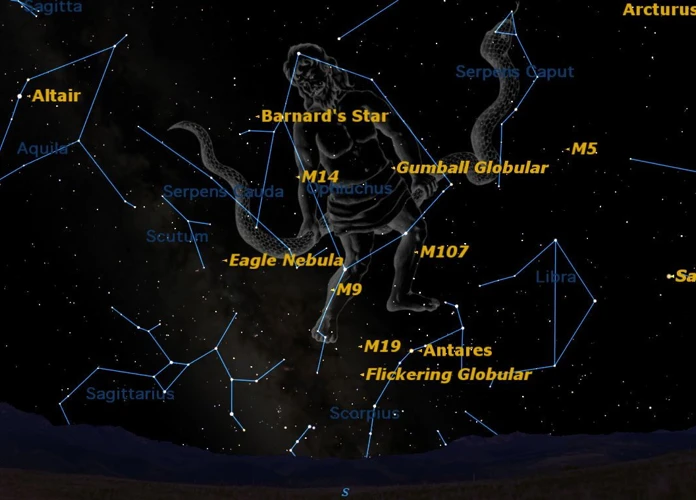Have you ever heard of the Ophiuchus constellation? Although not as well-known as the zodiac constellations, Ophiuchus holds a rich and intriguing symbolism that spans across ancient mythology and diverse cultures. In this article, we will delve into the depths of the Ophiuchus constellation, exploring its origins and the fascinating stories that surround it. Join us on this cosmic journey as we uncover the mysterious and captivating world of Ophiuchus, the Serpent Bearer.
Contents
- The Ophiuchus Constellation: Overview
- Symbolism and Mythology
- Significance in Cultures
- Interpreting Ophiuchus Today
- Conclusion
-
Frequently Asked Questions
- 1. What is the meaning of the Ophiuchus Constellation?
- 2. How did the Ophiuchus Constellation get its name?
- 3. Is Ophiuchus a part of the Zodiac?
- 4. What are some notable stars in the Ophiuchus constellation?
- 5. How does Ophiuchus differ from other constellations?
- 6. What is the cultural significance of Ophiuchus?
- 7. Can Ophiuchus be linked to the personality traits of individuals?
- 8. Are there any compatibility associations with Ophiuchus?
- 9. How is Ophiuchus represented in modern pop culture?
- 10. Where can I find more information about Ophiuchus and its mythology?
- References
-
Frequently Asked Questions
- 1. What is the meaning of the Ophiuchus constellation?
- 2. How did the Ophiuchus constellation get its name?
- 3. What is the significance of Ophiuchus in astrology?
- 4. Are there any ancient myths associated with Ophiuchus?
- 5. How does Ophiuchus relate to medicine and healing?
- 6. Is Ophiuchus recognized in other cultures beyond Greek mythology?
- 7. What traits and characteristics are attributed to individuals born under Ophiuchus?
- 8. How has Ophiuchus influenced astrology and the zodiac?
- 9. Can you find references to Ophiuchus in modern popular culture?
- 10. What other constellations have connections to Ophiuchus?
- References
- Read More
The Ophiuchus Constellation: Overview
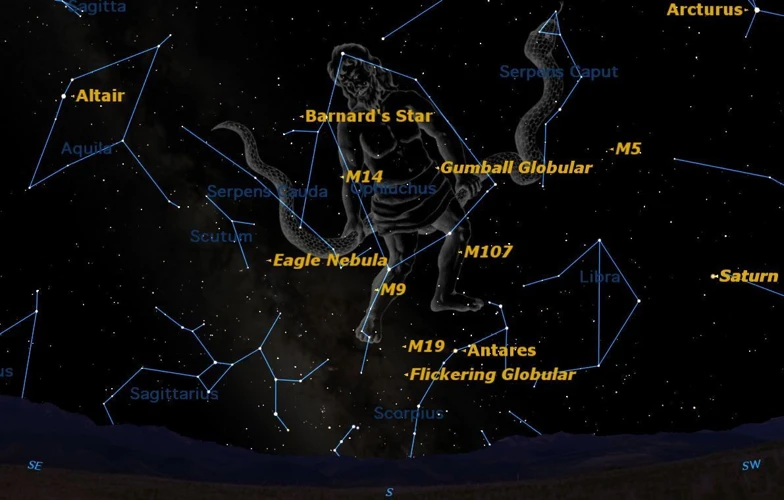
The Ophiuchus constellation, also known as the Serpent Bearer, is situated near the celestial equator, stretching across the southern sky. With its serpentine shape, Ophiuchus stands out among the other constellations. It is located between the constellations of Scorpius and Sagittarius, earning its name from the Greek word “ophis” which translates to “serpent.” Ophiuchus is noticeable for its bright stars, including the red-giant star Rasalhague, which marks the head of the Serpent Bearer. This constellation holds significance in astronomy, as it encompasses a region known as the Ophiuchus Supercluster, a vast collection of galaxies. While not traditionally part of the zodiac, Ophiuchus has gained attention in recent years due to its placement along the ecliptic. This has sparked discussions about its relationship with astrology and its potential influence on the zodiac. Despite its relatively lesser-known status, the Ophiuchus constellation offers a wealth of intrigue and exploration for those with a penchant for the celestial realm.
Symbolism and Mythology
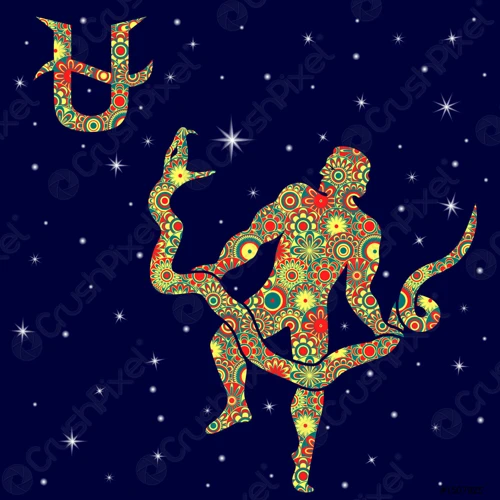
The Ophiuchus constellation is steeped in symbolism and mythology that has captivated cultures throughout history. In ancient Greek mythology, Ophiuchus is often associated with the god Apollo’s son, Asclepius, who possessed great healing abilities. Asclepius is depicted with a staff entwined by a serpent, which has become synonymous with Ophiuchus as the Serpent Bearer. The serpent symbolizes transformation, wisdom, and rebirth across various mythological interpretations. Ophiuchus is also linked to the staff of Hermes, known as the Caduceus, which is associated with medicine and healing. The constellation’s representation in different cultures reveals its intriguing cross-cultural significance, transcending borders and beliefs. Today, Ophiuchus continues to spark curiosity and inspire astrological explorations, provoking discussions about its potential impact on the zodiac and its symbolism in present-day interpretations. The rich symbolism and mythological connections surrounding Ophiuchus make it an enigmatic and compelling constellation to discover and contemplate.
1. Ancient Greek Origins
In ancient Greek mythology, the origins of the Ophiuchus constellation can be traced back to a renowned figure named Asclepius. According to legend, Asclepius was a skilled healer and physician who possessed incredible knowledge of medicine. He became so proficient in his craft that he could even bring the dead back to life. His abilities were seen as a challenge to the natural order, leading to his eventual demise. Zeus, the king of the gods, struck down Asclepius with a thunderbolt, fearing the imbalance his powers could create. However, in honor of his immense contributions to the field of healing, Zeus elevated Asclepius to the heavens, transforming him into the constellation Ophiuchus. Asclepius’s placement among the stars served as a reminder of his immense wisdom and the transformative power of medicine. This Greek origin story highlights the significance of Ophiuchus as a symbol of medical knowledge and healing. It also reflects the deep connection between mythology and the celestial realm, where gods and heroes were immortalized in the constellations above.
2. Ophiuchus as the Serpent Bearer
Ophiuchus is commonly referred to as the Serpent Bearer, and this symbolism can be traced back to the constellation’s ancient Greek origins. According to Greek mythology, Ophiuchus represents Asclepius, the great healer and physician who possessed the ability to resurrect the dead. Asclepius was trained in the art of medicine by the centaur Chiron and became so skilled in his craft that he could even revive those on the brink of death. One of the most famous depictions of Ophiuchus as the Serpent Bearer is the Rod of Asclepius, which features a serpent wrapped around a rod. This symbol is still used today in the medical field as a representation of healing and health. The serpent in this context signifies wisdom and rebirth, while the rod symbolizes the power to heal and restore. Ophiuchus as the Serpent Bearer embodies both the physical and spiritual aspects of healing, embodying qualities of knowledge, transformation, and the restoration of balance. This connection between Ophiuchus and healing continues to inspire individuals who resonate with the constellation’s energy and seek to explore the depths of its symbolism.
3. Connections to Medicine and Healing
The Ophiuchus constellation has profound connections to medicine and healing, which can be traced back to its mythological origins. In Greek mythology, Ophiuchus is often associated with the god Apollo’s son, Asclepius, who was renowned as the god of medicine and healing. Asclepius was said to possess incredible healing abilities and was often depicted holding a snake-entwined staff, known as the Rod of Asclepius. This symbol, consisting of a serpent coiled around a staff, is still widely recognized as the symbol of medicine today. The representation of Ophiuchus as a healer is further strengthened by the presence of the serpents in the constellation, symbolizing rebirth and transformation. The association between Ophiuchus and healing extends beyond Greek mythology, as other cultures also recognize its healing attributes. In Native American folklore, the Ophiuchus constellation is seen as a healer who possesses the knowledge and power to rid the world of diseases. Similarly, in Egyptian mythology, Ophiuchus is linked to Imhotep, the god of healing and medicine. Imhotep is revered as the most famous healer and physician in ancient Egyptian history. This consistent connection between Ophiuchus and healing across cultures highlights the enduring symbolism of the Serpent Bearer in the context of medicine and well-being. Thus, Ophiuchus carries a profound significance for those who seek healing or are involved in the field of medicine.
4. Cross-Cultural Interpretations
Cross-cultural interpretations of the Ophiuchus constellation reveal a common thread of fascination with serpents and healers across different civilizations. In ancient Egyptian mythology, Ophiuchus is associated with the god Imhotep, who was revered as a healer and architect. Imhotep’s connection to the constellation highlights the significance of Ophiuchus in medicine and healing practices. In Native American lore, Ophiuchus is often depicted as the “Man-Legged Serpent” or a powerful shaman who possesses the ability to communicate with serpents and harness their healing powers. Chinese astrology acknowledges Ophiuchus as the “Serpent Holder” or the “Snake Charmer,” emphasizing its role in balancing the energies of the zodiac. In Mayan civilization, the Ophiuchus constellation aligns with the plumed serpent god known as Kukulkan, symbolizing wisdom, transformation, and spiritual guidance. Similarly, in African mythology, the Zulu legend tells the tale of a dual serpent-god associated with the Ophiuchus constellation, representing both creation and destruction. These diverse interpretations of Ophiuchus across different cultures shed light on the universal fascination with snakes, healers, and the intricate connections between the celestial and earthly realms.
5. Modern Astrological Representations
In modern astrology, Ophiuchus has gained attention and sparked discussions about its potential as a thirteenth zodiac sign. According to some astrologers, those born between November 29 and December 17 fall under the Ophiuchus zodiac sign. Advocates for Ophiuchus believe that this addition brings balance and completes the zodiac, attributing unique traits and characteristics to individuals born under this sign. They perceive Ophiuchus as a healer, a seeker of knowledge, and someone with strong leadership qualities. This modern representation of Ophiuchus has led to debates and exploration of its compatibility with other zodiac signs. Some speculate on the compatibility between Ophiuchus and Pisces, as both signs are associated with strength and power. Additionally, its potential connection with Aquarius has also triggered discussions on the harmony or clash between these two signs. While not universally recognized in traditional astrology, the exploration of Ophiuchus in modern astrological representations adds a layer of intrigue and complexity to the zodiac landscape. For those interested in delving into the unique qualities and potential compatibility of Ophiuchus, further research and investigation are certainly warranted.
Significance in Cultures
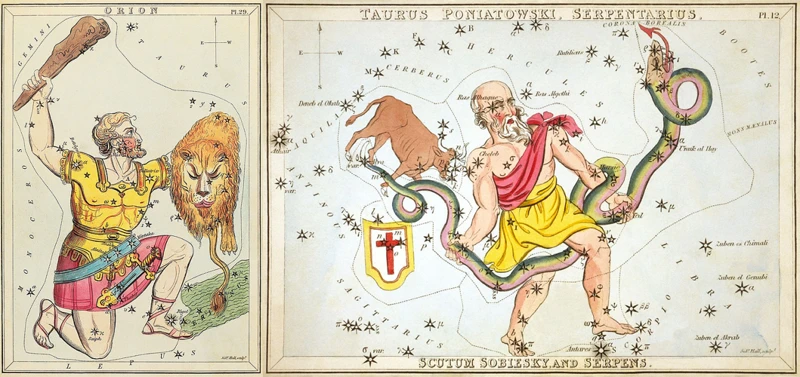
The Ophiuchus constellation holds significant meaning in various cultures around the world. In Egyptian mythology, Ophiuchus is associated with Imhotep, the god of healing and medicine. Imhotep was revered for his knowledge and mystical abilities, making Ophiuchus a symbol of healing and wisdom in Egyptian culture. Native American lore tells a tale of Ophiuchus as the Man-Legged Serpent, representing both transformation and power. In Chinese astrology, the Serpent Holder is associated with knowledge and intellect. Additionally, the Mayan civilization worshipped the Plumed Serpent God Kukulkan, who is closely tied to Ophiuchus and represents rebirth and fertility. In African mythology, the Zulu legend speaks of the Dual Serpent-God, symbolizing duality and balance. The cultural significance of Ophiuchus highlights its universal appeal and integration into diverse belief systems, further enhancing its mystical allure.
1. Egyptian Mythology: Imhotep the Healer
In Egyptian mythology, the Ophiuchus constellation holds a special place with the figure of Imhotep, the revered healer. Imhotep was a prominent ancient Egyptian architect, high priest, and physician who lived during the 27th century BCE. He was renowned for his exceptional medical knowledge and healing abilities. Imhotep’s association with the Ophiuchus constellation comes from his depiction as a serpent bearer, holding the power to tame and heal venomous snakes. He was considered the divine patron of medicine and often depicted with serpents wrapped around a staff, which is now recognized as the symbol of modern medicine, the caduceus. Imhotep’s healing prowess was so legendary that he was elevated to a god-like status and worshipped as a deity in later Egyptian history. His connection to Ophiuchus signifies the immense reverence ancient Egyptians had for healing and medicine, attributing it to celestial forces. Imhotep’s influence on medicine, combined with the ancient symbolism of the Serpent Bearer, continues to captivate and inspire those interested in the mysteries of ancient Egypt and the healing arts.
2. Native American Lore: Ophiuchus as the Man-Legged Serpent
In Native American lore, the Ophiuchus constellation holds a unique interpretation as the Man-Legged Serpent. Indigenous tribes across North America have various stories and legends that feature Ophiuchus in this form. For example, the Hopi tribe associates Ophiuchus with the deity Avanyu, a horned serpent believed to be a protector of water sources and fertility. Avanyu is often depicted with a human body and the lower portion resembling that of a serpent, symbolizing the connection between humans and nature. Similarly, the Lakota people have a legend of a medicine man who possessed the ability to transform into a serpent-like creature known as Iktomi. This transformation allowed him to bridge the gap between human and animal worlds, serving as a symbol of healing and spiritual transformation. The Man-Legged Serpent portrayal of Ophiuchus in Native American lore emphasizes the harmony between humans and nature, and the spiritual connections that exist within the natural world. It highlights the deep reverence and respect that Indigenous cultures hold for the natural environment and the belief in the interconnectedness of all living beings.
3. Chinese Astrology: The Serpent Holder
In Chinese astrology, the Ophiuchus constellation is often referred to as the Serpent Holder. Within Chinese mythology, there are various interpretations and stories associated with this constellation. One prominent legend tells of a great flood that threatened all of humanity. The hero of the story, called Nuwa, sought to save the world by plugging the holes in the sky with stones to stop the floodwaters. One of these stones is said to be represented by the stars of Ophiuchus. According to Chinese astrology, those born under the sign of Ophiuchus are believed to possess the qualities of wisdom and healing. They are seen as wise individuals who have the ability to understand the hidden truths of the universe. Their natural inclination towards healing and helping others makes them compassionate and empathetic individuals. The Serpent Holder in Chinese astrology represents a balance between knowledge, wisdom, and the power to bring harmony and restoration to those in need. The connection between Chinese astrology and the Ophiuchus constellation offers a unique perspective on the symbolic significance and cultural interpretation of this celestial figure.
4. Mayan Civilization: The Plumed Serpent God Kukulkan
One fascinating connection to the Ophiuchus constellation is found within the Mayan civilization, where it is associated with the deity known as Kukulkan, the Plumed Serpent God. In Mayan mythology, Kukulkan held immense significance as a powerful and wise deity, representing aspects of creation, fertility, and wisdom. The depiction of the Plumed Serpent God closely aligns with the constellation, symbolizing the serpent’s ability to shed its skin and be reborn, much like the celestial cycle of Ophiuchus traversing the night sky. Kukulkan was considered a divine ruler, known for his wisdom and teachings. His presence was believed to bring crops, rain, and prosperity to the Mayan people. As a respected leader, Kukulkan served as a source of inspiration for qualities such as leadership, knowledge, and transformation. Exploring the Mayan civilization’s reverence for Kukulkan and its connection to the Ophiuchus constellation sheds light on the rich symbolism associated with this celestial entity and its expansive influence throughout different cultures.
5. African Mythology: The Zulu Legend of the Dual Serpent-God
In African mythology, the Zulu culture has its own unique interpretation of the Ophiuchus constellation. According to Zulu legend, there exists a dual serpent-god known as Mamlambo. Mamlambo is a powerful and enigmatic deity associated with water and fertility. In Zulu mythology, the serpent-god is depicted as having two heads and a serpentine body, much like the constellation of Ophiuchus itself. Mamlambo is said to reside in bodies of water, such as lakes and rivers, and is thought to bring both blessings and curses. The Zulu people believe that encounters with Mamlambo can result in either good fortune or misfortune, depending on one’s actions and intentions. This duality of the serpent-god reflects the complex nature of life and the delicate balance that exists in the world. The Zulu legend of the dual serpent-god adds a fascinating facet to the symbolism and mythology surrounding the Ophiuchus constellation, offering a captivating glimpse into the rich cultural tapestry of African folklore and beliefs.
Interpreting Ophiuchus Today
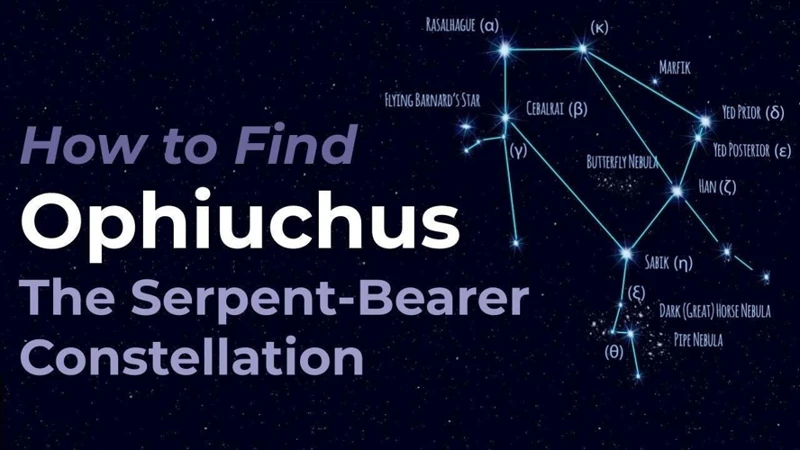
In modern times, the interpretation of Ophiuchus holds a unique place in astrology and popular culture. While not officially recognized as one of the traditional zodiac signs, Ophiuchus has garnered attention for its potential influence on the astrological landscape. Some believe that individuals born under the Ophiuchus sign possess distinct traits and characteristics that set them apart. Known as the “Serpent Bearers,” those associated with this constellation are often seen as healers and seekers of knowledge. Their natural curiosity and inquisitiveness make them well-suited for exploration and growth. Ophiuchus has also seeped into popular culture, appearing in various forms of media and inspiring further inquiry into its symbolism and meaning. Whether you view it as a part of the zodiac or simply appreciate its enigmatic allure, Ophiuchus continues to captivate and intrigue astrologers and enthusiasts alike.
1. Influence on Astrology and Zodiac
The Ophiuchus constellation has sparked curiosity and debate regarding its influence on astrology and the zodiac. Traditionally, the zodiac consists of twelve constellations that align with specific dates throughout the year. However, Ophiuchus lies along the ecliptic and overlaps with the traditional zodiac, leading some to consider it as a thirteenth zodiac sign. This idea has gained both supporters and critics within the astrological community. Those who believe in the inclusion of Ophiuchus argue that it disrupts the established system and brings forth new personality traits and characteristics. However, skeptics argue that the astrological system has worked effectively with twelve signs for centuries and see no need for the addition of Ophiuchus. Regardless of whether it is officially recognized, the notion of Ophiuchus as a zodiac sign has created an interesting topic of discussion and exploration for astrology enthusiasts. It encourages individuals to delve deeper into the symbolism and traits associated with this celestial entity, broadening our understanding of the complexities of astrology. So, whether you see Ophiuchus as a transformative addition or prefer to stick with the traditional signs, exploring the potential influence of this constellation can offer a fresh perspective on the zodiac.
2. Traits and Characteristics of Ophiuchus
Traits and characteristics associated with the Ophiuchus constellation reveal a complex and multifaceted personality. Individuals born under this sign are often seen as charismatic, ambitious, and driven. They possess natural leadership qualities and strive for success in all aspects of their lives. Ophiuchus is known for its wisdom and deep understanding of the world, making people under this sign highly intuitive and insightful. They have a strong desire to help others and are often drawn to fields related to healing and medicine. Ophiuchus individuals are not afraid to challenge the status quo and are known for their innovative thinking. They possess a natural magnetism that draws people to them, and they have the ability to inspire and motivate others. With a blend of intellect, determination, and compassion, Ophiuchus individuals have the potential to achieve great things and make a positive impact on the world around them. To explore more about the qualities of Ophiuchus and its compatibility with other zodiac signs, you can read our article on exploring leadership qualities of Ophiuchus in the zodiac.
3. Ophiuchus in Modern Pop Culture
Ophiuchus, the enigmatic Serpent Bearer constellation, has made its mark on modern pop culture in various ways. In the realm of astrology, its emergence as a potential 13th zodiac sign has sparked discussions and debates. People born under the Ophiuchus sign are said to possess unique traits and characteristics, separating them from the traditionally recognized zodiac signs. This newfound interest in Ophiuchus has prompted astrologers and enthusiasts to explore its compatibility with other signs, contributing to the evolution of the astrological landscape. Additionally, Ophiuchus has influenced the world of art and fashion, with its distinct shape and symbolism featured in jewelry, clothing designs, and even tattoo art. Its association with healing and wisdom has resonated with individuals seeking to embrace their spiritual side or connect with ancient wisdom. Ophiuchus’ presence in modern pop culture serves as a reminder of the enduring fascination with the celestial world and the mysteries it holds.
4. Mythological Constellation Connections
Mythological connections to the Ophiuchus constellation add further depth and intrigue to its symbolism. Throughout history, various cultures have intertwined their myths and legends with this celestial figure. In Greek mythology, Ophiuchus is associated with the demigod Asclepius, the son of Apollo and Coronis. Asclepius was known for his incredible healing abilities and was often depicted carrying a serpent-entwined staff, which has become a symbol of medicine and healing. This connection between Ophiuchus and healing is also seen in Egyptian mythology, where the serpent played a significant role in the myth of Imhotep, the god of medicine and healing. In Native American lore, Ophiuchus is associated with the Man-Legged Serpent, a powerful and mysterious creature said to possess transformative powers. Chinese astrology invokes the Serpent Holder, a figure associated with wisdom, healing, and higher knowledge. The Mayan civilization saw Ophiuchus as the representation of the Plumed Serpent God Kukulkan, who brought knowledge and civilization to humanity. In African mythology, the Zulu legend tells of the dual serpent-god associated with fertility and rain. These varied mythological connections highlight the enduring fascination and symbolic importance of the Ophiuchus constellation across different cultures and time periods.
Conclusion
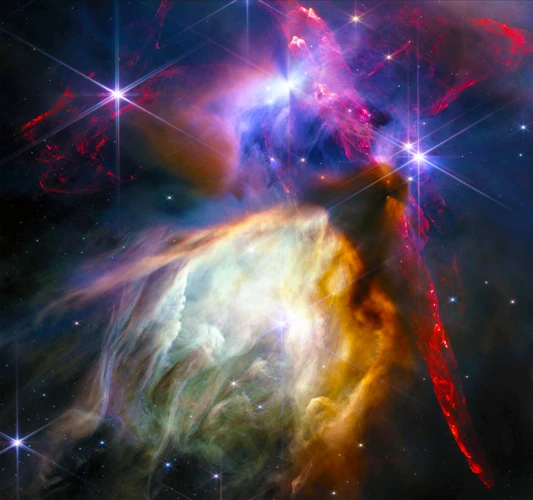
In conclusion, the Ophiuchus constellation embodies a captivating blend of symbolism, mythology, and cultural significance. From its ancient Greek origins as the Serpent Bearer to its associations with healing and medicine, Ophiuchus has left an indelible mark on various cultures throughout history. While not part of the traditional zodiac, Ophiuchus has sparked interest and debates in modern astrology over its potential influence on personality traits and compatibility. Whether you find yourself drawn to the stories of Imhotep the Healer in Egyptian mythology or the Native American lore of the Man-Legged Serpent, Ophiuchus offers a vast array of intriguing narratives to explore. With its placement in the night sky and its connections to other mythological constellations, Ophiuchus invites us to gaze upwards and ponder the mysteries of the cosmos. So, next time you find yourself admiring the stars, take a moment to appreciate the enigmatic allure of Ophiuchus and the wonders it holds within its celestial boundaries.
Frequently Asked Questions
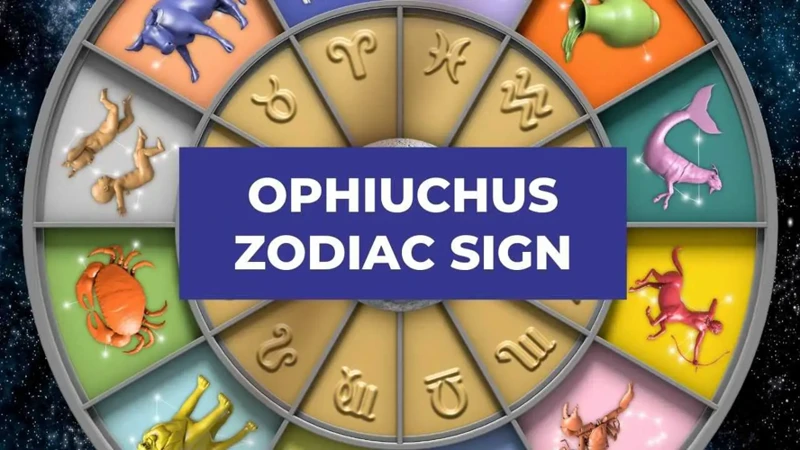
1. What is the meaning of the Ophiuchus Constellation?
The Ophiuchus Constellation represents the Serpent Bearer and is associated with various symbolisms, including healing, wisdom, and rebirth.
2. How did the Ophiuchus Constellation get its name?
The name Ophiuchus originates from the ancient Greek word “ophis,” meaning “serpent.” It refers to the prominent serpent imagery associated with this constellation.
3. Is Ophiuchus a part of the Zodiac?
Although Ophiuchus is not one of the traditional zodiac constellations, it does intersect the ecliptic, the path of the Sun. This has led to discussions about its potential influence on astrology.
4. What are some notable stars in the Ophiuchus constellation?
Rasalhague, located at the head of the Serpent Bearer, is one of the most recognizable stars in Ophiuchus. Other notable stars include Sabik, Han, and Cebalrai.
5. How does Ophiuchus differ from other constellations?
Ophiuchus stands out due to its distinctive serpentine shape and its location in the southern sky near Sagittarius and Scorpius. It also holds significance in astronomy with the Ophiuchus Supercluster, a region containing numerous galaxies.
6. What is the cultural significance of Ophiuchus?
Ophiuchus has cultural significance in various mythologies and belief systems around the world, including ancient Greek, Egyptian, Native American, Chinese, Mayan, and African cultures.
7. Can Ophiuchus be linked to the personality traits of individuals?
While Ophiuchus is not officially recognized in mainstream astrology, some people believe that those born under this constellation may exhibit traits such as intuition, a healing nature, and a quest for knowledge.
8. Are there any compatibility associations with Ophiuchus?
Compatibility associations with Ophiuchus are not widely recognized, as it is not a traditional zodiac sign. However, some astrologers have explored potential connections with other signs, such as Ophiuchus and Pisces or Ophiuchus and Aquarius.
9. How is Ophiuchus represented in modern pop culture?
Ophiuchus occasionally makes appearances in literature, films, and art, often depicted as a powerful figure associated with healing, wisdom, or mystical abilities.
10. Where can I find more information about Ophiuchus and its mythology?
To learn more about Ophiuchus and its mythology, you can explore ancient texts, books on astrology and mythology, or consult reputable online resources dedicated to constellations and celestial lore.
References
Frequently Asked Questions

1. What is the meaning of the Ophiuchus constellation?
The Ophiuchus constellation represents the Serpent Bearer in Greek mythology. It is associated with healing, medicine, and the balance between life and death.
2. How did the Ophiuchus constellation get its name?
The name “Ophiuchus” is derived from the Greek words “ophis” meaning serpent and “ekhein” meaning to hold. It refers to the constellation’s depiction of a man holding a serpent.
3. What is the significance of Ophiuchus in astrology?
Ophiuchus is often considered the 13th zodiac sign, despite not being officially recognized in Western astrology. Its emergence challenges traditional astrological beliefs and adds an extra dimension to the zodiac.
4. Are there any ancient myths associated with Ophiuchus?
Ancient Greek mythology tells the story of Asclepius, a skilled healer who became the constellation Ophiuchus after his death. His abilities to revive the dead led to his punishment by Zeus.
5. How does Ophiuchus relate to medicine and healing?
In Greek mythology, Ophiuchus represents the god of healing, Asclepius. The constellation’s association with medicine and healing stems from this mythological connection.
6. Is Ophiuchus recognized in other cultures beyond Greek mythology?
Yes, Ophiuchus has been recognized in various cultures around the world. It holds significance in Egyptian mythology, Native American lore, Chinese astrology, Mayan civilization, and African mythology.
7. What traits and characteristics are attributed to individuals born under Ophiuchus?
People born under Ophiuchus are said to possess traits such as wisdom, intuition, healing abilities, and a desire for knowledge. They are often described as natural healers and have a deep understanding of the human psyche.
8. How has Ophiuchus influenced astrology and the zodiac?
Ophiuchus has challenged the traditional 12-sign zodiac system, prompting discussions and debates among astrologers. Some believe that individuals born under Ophiuchus should be included as the 13th zodiac sign.
9. Can you find references to Ophiuchus in modern popular culture?
Yes, Ophiuchus has made appearances in modern pop culture, including literature, films, and television shows. It is often depicted as a powerful and mysterious figure with exceptional healing abilities.
10. What other constellations have connections to Ophiuchus?
Some constellations associated with Ophiuchus include Serpens Caput and Serpens Cauda, which represent the serpent’s head and tail respectively. These constellations add to the symbolic significance of Ophiuchus.
References
- Ophiuchus: Facts about the Snake Bearer
- Ophiuchus | Astrology, Zodiac, Mythology
- Ophiuchus, 13th constellation of Zodiac | Tonight
